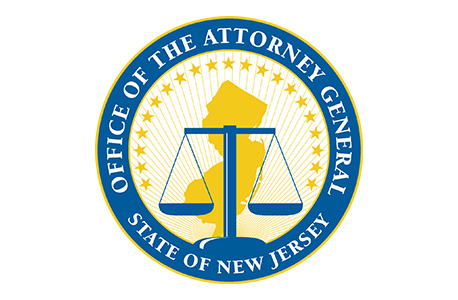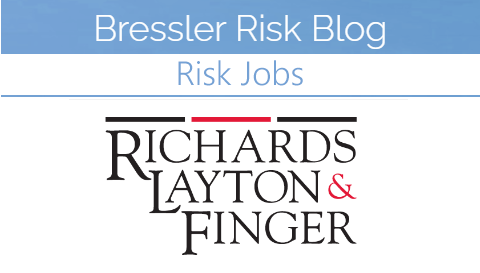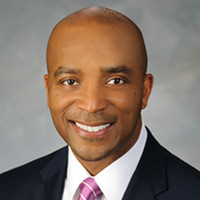Ethical Screen and Security News — Law Firm Security Breach Hits HIPAA, Lawyer Screening Stories
Posted on
“Law firm informs 255K of HIPAA data incident 10 months after hack” —
- “Warner Norcross & Judge recently informed the Department of Health and Human Services of a Health Insurance Portability and Accountability Act data breach impacting 255,160 individuals. The law firm provides employment and immigration services to healthcare entities, including three of the largest hospital systems in Michigan.”
- “On Oct. 22, 2021, WNJ first discovered unauthorized activity on ‘some of its systems’ and took steps to secure the network. A digital forensics firm was brought on to investigate and to perform a ‘data mining and manual review.'”
- “WNJ found that personal and protected health information was contained in the protected systems, including names, dates of birth, Social Security numbers, driver’s licenses, passports, and government IDs, annual compensation amounts, benefit contribution details, credit or debit card numbers and PINs, financial accounts or routing numbers, and other sensitive data.”
- “The notice appears to explain the lengthy delay in notifying patients as tied to its data mining to identify impacted information and individuals. But under HIPAA, covered entities and business associates are required to report within 60 days of discovery, not at the close of an investigation.”
“Firm Yanks Atty From Ga. Clinic FCA Suit After DQ Bid” —
- “A Georgia law firm agreed to pull one of its attorneys from representing doctors at an orthopedic clinic defending a False Claims Act suit, after a former clinic executive raised concerns that the attorney worked for the U.S. Department of Justice when she filed whistleblower allegations.”
- “Griffin Durham Tanner & Clarkson LLC said it will replace attorney Charles W. Byrd on the case defending two Athens Orthopedic Clinic surgeons against claims they violated federal anti-kickback laws. The clinic’s former chief operating officer, Rebecca Hockaday, agreed to drop her motion to disqualify the firm with Byrd no longer on the case.”
- “Hockaday alleged in her disqualification motion that Byrd had access to confidential and privileged information that could be integral to her case as part of his role as an assistant U.S. attorney at the time she filed the whistleblower complaint against the clinic.”
- “Clarkson assured Hockaday that neither he nor anyone else at the firm had received confidential or privileged information from Byrd regarding the case, she said in the motion. The firm also agreed to ensure that Byrd was ‘timely screened from any participation in the matter,’ Hockaday said, and would receive no part of the fees arising from it. She also said the firm agreed to give the government the ability to ensure those promises were kept.”
- “The surgeons had previously responded to the disqualification motion by arguing Byrd couldn’t recall having any substantive involvement in the suit when he was an assistant U.S. attorney and said that, prior to agreeing to represent them, he had inquired with the U.S. Attorney’s Office for the Middle District of Georgia about whether he had any involvement with the suit during his tenure with the office. According to the filing, Byrd was told he hadn’t and that it had been handled by another attorney.”
And via Bill Freivogel:
- “Lecompte v. C.F. Woodford & Son, Inc., 2022 WL 4129410 (Super. Ct. Conn. Sept. 12, 2022). Plaintiff is suing Defendants for injuries suffered on Defendants’ premises. Firm 1 represents Defendants. Firm 2 represents Plaintiff. Lawyer was employed at Firm 1 when this case began. Lawyer moved to Firm 2. Defendants moved to disqualify Lawyer and Firm 2. In this opinion the court denied the motion. In a fact-intensive analysis the court found that Lawyer did not represent Defendants while at Firm 1 and learned nothing about the case while there. Thus, there was no basis to disqualify Lawyer or Firm 2 and no need for a screen at Firm 2.”
- “In re Maxus Energy Corp., 2022 WL 4113656 (3d Cir. Sept. 9, 2022). In this Chapter 11 proceeding the liquidating trustee is suing YPF S.A., and others, for fraudulent conveyance and related claims. Firm 1 is representing the trustee. Firm 2 is representing YPF. Lawyer, while at Firm 2 did substantial work on the case for YPF. Lawyer moved to Firm 1, which erected a timely screen. YPF moved to disqualify Firm 1. The bankruptcy judge denied the motion, terming the screen “robust.” In this opinion the Third Circuit affirmed. The court noted that the Bankruptcy Court for the District of Delaware had adopted the ABA Model Rules. The only unique circumstance here was that when Lawyer changed firms, she was engaged to a lawyer in her new firm. (They ultimately married, but the opinion is not clear when.) While Lawyer was not apportioned any fees from this case, her “spouse” was not so treated. YPF felt that for the screen to be effective, the spouse should also be denied a share of fees from the case. Nope, said the Third Circuit, construing Model Rule 1.10(a)(2)(i).”
- “Lowes v. Lowes, 2022 MBQB 156 (CanLII) (Ct. Q.B. Man. July 29, 2022). Divorce case filed by W. One of W’s lawyers was Lawyer employed by Law Firm 1. After W replaced lawyer, Lawyer left Firm 1 and joined Law Firm 2. Law Firm 2 is representing H in this case. W moved to disqualify Law Firm 2. In this opinion the master denied the motion. Firm 2 had erected an “ethical wall” (herein, “Screen”). In an exhaustive discussion of authorities throughout Canada on screening laterals, the master relied primarily upon guidelines in the Law Society of Manitoba Code of Professional Conduct. The Manitoba guidelines are consistent with those recommended by the Federation of Law Societies and the Canadian Bar Association. We will not set forth the guidelines’ requirements for Screens other than to say that they work in Canada, and there were no surprises here.”










